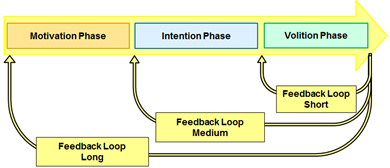Sorry, this entry is only available in Deutsch.
Tag: Universität
Motivation to Study: 24 Tips for Teachers
Motivation to Study: 24 Tips for Higher Education
The students in your lectures and seminars maybe bored, lethargic or have no motivation following your teaching? Do you experience this sometimes?
You will find 24 tips for reflecting your academic teaching. These tips are derived from my recent research projects and grounded on the Integrated Model of Learning and Action (ILMA).
Academic Motivation: The Start (IMLA: Motivation Phase)
In the beginning, students need to realize what to expect. You can initialize the learning internalization process by providing in-depth information about the learning topic. The students can then establish a first learning orientation for themselves. They should become aware about their own strengths and weaknesses. The main emphasis should be on the learning process (and not the learning content). Teaching should always promote self-development and self-transformation. Other prerequisites for encouraging academic motivation are free choices, such as selecting a learning topic. This promotes the perceived autonomy and subsequently increases the acceptance of responsibility. This is the starting point for an increased motivation for learning.
,
The Learning Intention (ILMA)
Each student learns best in a specific way. And this way maybe very different from the teacher’s learning approach. Support your students in finding new learning methods and learning strategies. Encourage them actively to explore, experience and evaluate new learning methods.
,
The Implementation of Learning Actions (IMLA: Volition Phase)
The implementation of the learning process can be very different for each student. Create safe learning spaces which can be used for individual learning processes.
,
Motivation over Time: Feedback Loops (IMLA)
In order to keep the learning processes motivated and effective over time students should regularly reflect on their learning progress and their self-transformation. Therefore, provide your students with feedback on their individual learning progress.
.

This work is licensed uner Attribution-NonCommercial-ShareAlike 4.0 International
Image by wagrati_photo from Pixabay
Workshop: Fostering Learning at University
 Thomas Martens conducted a workshop on 30 June 2016 at the TU Dresden with the title “Fostering Learning at University: the Heterogeneity of Motivational Processes”. This workshop showed different ways of learning motivation and how the individual learning processes of students can be promoted.
Thomas Martens conducted a workshop on 30 June 2016 at the TU Dresden with the title “Fostering Learning at University: the Heterogeneity of Motivational Processes”. This workshop showed different ways of learning motivation and how the individual learning processes of students can be promoted. 
As theoretical basis served the Integrated Model of Learning and Action (IMLA) which divides the typical processes of learning in three main phases (motivation, intention and volition phase) and defines the relationship to the findings in neuro science from Julius Kuhl (2000).
Photo: kanenas.net

